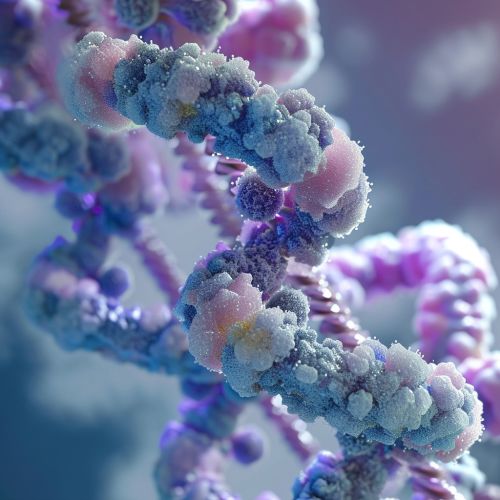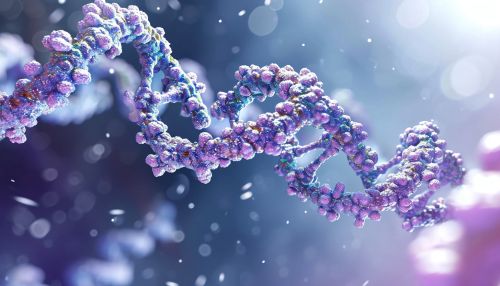Ribosomal Peptide
Introduction
A ribosomal peptide is a peptide that is synthesized by a ribosome, the molecular machine in cells that assembles proteins. These peptides are often involved in the regulation of biological processes and can have antimicrobial properties. Ribosomal peptides are a type of nonribosomal peptide, which are synthesized by nonribosomal peptide synthetases.


Structure and Synthesis
Ribosomal peptides are composed of amino acids, which are the building blocks of proteins. The sequence of amino acids in a ribosomal peptide is determined by the sequence of nucleotides in the mRNA molecule that is being translated by the ribosome. The ribosome reads the mRNA sequence three nucleotides at a time, a unit known as a codon, and each codon corresponds to a specific amino acid.
The synthesis of ribosomal peptides begins with the initiation phase, where the ribosome binds to the mRNA molecule and locates the start codon. During the elongation phase, the ribosome reads the mRNA sequence and adds the corresponding amino acids to the growing peptide chain. The process continues until the ribosome reaches a stop codon, signaling the end of the peptide sequence. This is followed by the termination phase, where the completed peptide is released from the ribosome.
Functions
Ribosomal peptides have a variety of functions in the cell. Many ribosomal peptides are precursors to functional proteins, which carry out a wide range of tasks in the cell, from catalyzing chemical reactions to providing structural support. Some ribosomal peptides act as signaling molecules, regulating cellular processes such as growth and differentiation. Others have antimicrobial properties and are part of the cell's defense system against pathogens.
Types of Ribosomal Peptides
There are many types of ribosomal peptides, each with its own unique sequence of amino acids and function in the cell. Some examples of ribosomal peptides include:
- Insulin, a hormone that regulates blood sugar levels. - Glucagon, a hormone that raises blood sugar levels. - Oxytocin, a hormone that plays a role in social bonding and childbirth. - Vasopressin, a hormone that regulates water balance in the body. - Somatostatin, a hormone that inhibits the release of growth hormone.
See Also
- Protein Synthesis - Amino Acids - Nonribosomal Peptides - Hormones
